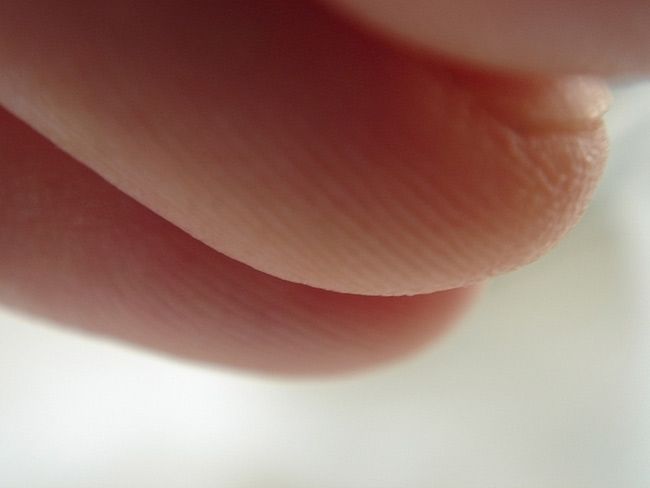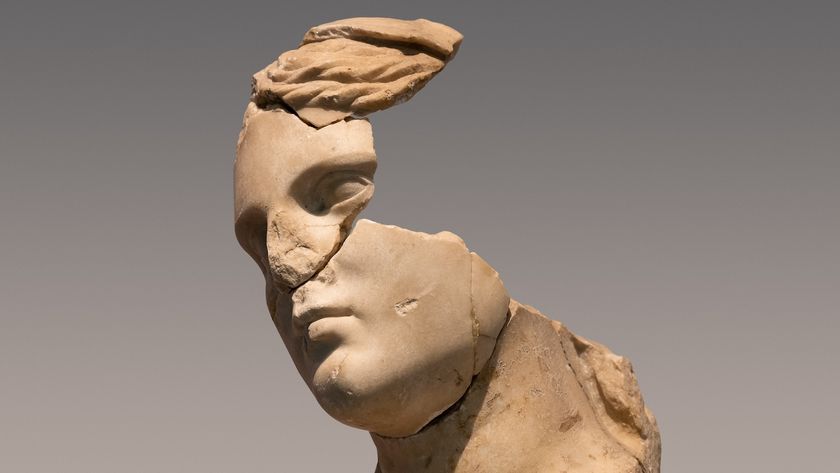Purpose of Fingerprints Is Questioned

The bumpy ridges on the tips of our fingers are an evolutionary mystery.
Scientists have long reasoned that fingerprints help humans grip objects by creating friction, since a few primates and tree-climbing koalas also have fingerprints.
But a new study found that if fingerprints help people grip things, it's not because they create more friction.
Scientist Peter Warman, from the University of Manchester in England, strapped his finger into a machine that measures friction, while his mentor Roland Ennos slid a piece of acrylic glass, called Perspex, across the finger. To their surprise, they found that no matter how hard they pulled the glass, the friction would barely increase.
In these experiments, with two solid objects, friction should be proportional to the force of the glass on the finger, so the harder they slid the glass, the more friction should be created. However, the finger was not behaving like a normal solid; it was behaving like rubber.
With rubber, friction is proportional to the contact area between two surfaces, not how hard they press together. When the researchers used glass strips of different width in their experiment, they found that the wider strips produced the most friction.
Because our fingertips are ridged, not smooth, when we grab an object we actually have less of our skin in contact than we would if we didn't have fingerprints. To create a strong grip, our fingers must touch as much of an object as possible.
Sign up for the Live Science daily newsletter now
Get the world’s most fascinating discoveries delivered straight to your inbox.
The findings only show that fingerprints don't tighten our grasp on smooth surfaces. The authors think that the ridges on our fingerprints might still have helped our primate ancestors grab rough surfaces, such as when climbing a tree. Fingerprints could also drain water from our fingerpads and help us maintain a dry grip during rain.
The findings are published in the June 12 issue of the Journal of Experimental Biology.
- Top 10 - Useless Limbs (and Other Vestigial Organs)
- Lasting Impression: How Fingerprints are Created
- Do Identical Twins Have Identical Fingerprints?












